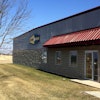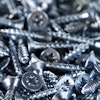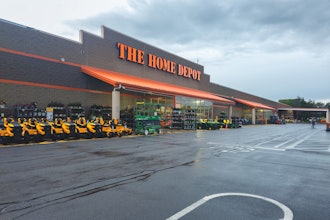WASHINGTON (AP) — Orders for long-lasting manufactured goods outside of transportation fell in January by the largest amount in two years.
Orders for durable goods excluding transportation fell 3.6 percent last month, the biggest drop since January 2009, the Commerce Department reported Thursday.
A key category viewed as a proxy for business investment spending was also down by the largest amount in two years.
Total durable goods orders rose 2.7 percent but that increase was driven by a huge rebound in orders for commercial aircraft, an extremely volatile category.
Manufacturing has been one of the standout performers during this recovery and economists expect that to continue despite the January weakness. January orders totaled $200.5 billion, considered a healthy level by economists and 25 percent above the recession low hit in March 2009.
The January rise in total orders was the first increase after three straight monthly declines. However, all the strength reflected a big surge in orders for aircraft after big declines in November and December. In January, orders for commercial aircraft rose to $7.4 billion, far above the December level of $148 million. Orders for autos and auto parts were up 0.4 percent in January.
But most other categories of durable goods showed weakness.
Orders for nondefense capital equipment excluding aircraft fell 6.9 percent to $62.3 billion, the biggest decline in two years. This category is closely watched because it is seen as a good proxy for business plans to buy capital goods to expand and modernize.
Many economists viewed the drop in demand for business capital goods as a temporary setback. They still expect this category to show significant strength this year as companies respond to tax changes intended to spur spending by allowing businesses full deductions on capital equipment purchased this year.
"Look beyond the volatility of the durable goods report as the new tax measures will boost business investment," said Jennifer Lee, senior economist at BMO Capital Markets.
Demand for machinery fell 13 percent in January, orders for computers were down 9.6 percent and orders for communication equipment dropped 14.4 percent. Demand for primary metals such as steel did show an increase of 1.1 percent and demand for fabricated metal products was up 0.8 percent.
Manufacturing activity has been expanding since the recession officially ended in June 2009. U.S. companies have benefited from rising domestic demand and stronger export sales. Exports are being helped by a declining dollar against many major currencies. A weaker dollar makes U.S. products cheaper in overseas markets.
Heavy equipment maker Caterpillar Inc. reported last month that its net income in the October-December quarter more than quadrupled from a year ago, propelled by strong overseas demand for the company's mining and construction equipment. The rising demand allowed Caterpillar, based in Peoria, Ill., to hire 19,000 people in 2010 including 7,500 in the United States as it ramped up production.


















